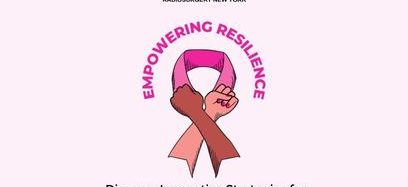Digital literacy has become an essential skill for individuals and communities to navigate the rapidly changing world of technology. From online communication to accessing information, digital literacy is key in today’s society. However, it goes beyond simple computer skills – it also empowers communities to effect change through advocacy, activism, and education that can make
Digital literacy has become an essential skill for individuals and communities to navigate the rapidly changing world of technology. From online communication to accessing information, digital literacy is key in today’s society. However, it goes beyond simple computer skills – it also empowers communities to effect change through advocacy, activism, and education that can make a difference at both local and global levels. In this blog post, we’ll explore how digital literacy helps build social capital among diverse groups and how its impact can be harnessed for positive change. Join us on this journey toward discovering how digital literacy is transforming our world!
What is Digital Literacy?
Digital literacy enables individuals to understand and use technology to access information, participate in civic life, and create or share ideas. It encompasses the skills necessary to navigate digital devices and networks, understand online privacy and security concerns, use online resources effectively, and take advantage of new digital technologies.
Digital literacy can empower marginalized communities by giving them the tools they need to participate fully in society. For example, those who are disabled or have limited access to traditional forms of communication can benefit from digital literacy training that teaches them how to use online resources and platforms. Additionally, digital literacy can help communities address issues such as environmental pollution, poverty relief, public health initiatives, and more.
According to a report by UNESCO (2017), “Digital inclusion is not a gesture but an essential part of good governance in the era of the Internet.” It is therefore important for everyone – including policymakers, educators, businesses and individuals – to understand the concept of digital literacy so that everyone can be empowered through access to technology.
How does Digital Literacy empower communities to effect change?
Digital Literacy empowers communities to effect change. It allows them to access and share knowledge and information, create new opportunities, and advocate for their own interests. As digital literacy grows in importance, so too does the impact it can have on social justice issues and other community concerns.
In the United States, digital literacy is often thought of in terms of online safety and education. In fact, these are vital areas of focus. However, digital literacy is much more than just knowing how to use the internet safely – it encompasses understanding how technology works and how it affects our lives.
This means that when communities work to improve their digital literacy levels, they are able to do so in a variety of ways: by learning about new technologies and using them for educational purposes; by engaging with government regulators and policy makers to ensure policies reflect the needs of youth; or by creating their own digital media projects that address local issues.
The benefits of improving digital literacy are vast – from creating stronger communities to ensuring better access to education and healthcare. And as we see more and more people making use of digital media technologies in their everyday lives, it’s clear that there is no one-size-fits-all approach when it comes to empowering citizens to effect change.
How can educators and parents help nurture digital literacy in their children?
One of the ways educators and parents can help nurture digital literacy in their children is by teaching them to be critical thinkers. This means helping them understand how technology works and how it can be used to advance social justice, environmental sustainability, and other humanitarian causes. Additionally, it is essential for children to have basic digital literacy skills in order to access the internet safely and effectively. This includes being able to understand how websites work, how to search for information using keywords, and how to navigate online applications.
Another way parents can help foster digital literacy in their children is by setting up a computer lab at home. This will allow them to provide instruction on topics such as web browsing, email correspondence, word processing, and more. Additionally, parents can offer opportunities for their children to participate in online communities that focus on specific interests or issues. By doing this, they will help their children build skills that will be valuable in the workplace of the future.
Conclusion
Digital literacy is essential to empowering communities to effect change. It provides individuals and groups with the critical tools they need to effectively participate in their democracy, engage in the global economy, and access information and services they need to fulfill their everyday lives. By arming people with the skills they need understand how technology works and use it for good, we are enabling them to make a positive impact on their communities.





















Leave a Comment
Your email address will not be published. Required fields are marked with *